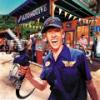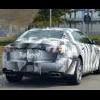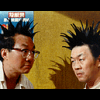Search the Community
Showing results for tags 'Article'.
-
I believe most people are not aware of the relationship between air pressure and load index when replacing their tires. Me too... source: http://www.tirereview.com/?type=art&id=5278& Double Jeopardy by Scott Blair In March 2006 / In Focus: Performance When you sell a set of non-OE tires, do you set the air pressure the same as it was in the OE tires? Do your sales staff, manager and technicians understand the importance of load index? Can they read a load and inflation table? Can they recite, from memory, the inflation rule – that the replacement tire must meet or exceed the OE tire’s load carrying capacity? If the answer’s “no,” you might be taking a big liability risk. Not only do you have to train your staff in these matters, you also have to document that training to be fully protected against potential legal losses. Concerned? You should be. In fact, sit down and hold on; we’re going to hit you right between the eyes. We’re going to show you how you can sell the right tire size but the wrong load index. More Complex Than Ever Times have changed. Five years ago, a specific tire size had only one load index number. Not today. Now, a given tire size may have as many as five different load index numbers molded on the sidewall, making it impossible just to look at the size of a given tire and make the assumption that the load index number is the same just because the tire size is same. These days, you have to look at each tire, along with its complete sizing information, before you can make any fitment decisions. The following case studies will illustrate the importance of the relationship between load index and tire size. Case File: One A customer wants a set of 20-inch tires on his 2003 Lexus LS430. The OE tire is a P225/55R17 95H, standard load (SL) with a load index of 95 and recommended cold inflation pressure of 32 psi front/rear. The overall diameter (OD) is 26.8. You have a stack of P255/35R20 93Hs on the floor with an OD of 27, so you sell him a package deal. “The OD is correct, so it must the right tire,” you think to yourself. Not so fast. Take a look at the load index of that 20-inch tire. Notice that it is 93. The OE tire’s load index was 95. Install that tire, and you just might open the door to a liability suit if that customer gets into a wreck after leaving your shop. “How can this be?” you ask. I’ll show you: The OE P225/55R17 95H tire inflated to the recommended air pressure equates to 1,477 pounds of load capacity. A standard load (SL) P-metric tire reaches its maximum load capacity at 35 psi, regardless of the maximum inflation pressure listed on the sidewall! Looking at the load and inflation table, we see that the load index of 93 on the P255/35R20 93H tire equates to only 1,433 pounds of load capacity at 35 psi. It’s only 44 pounds per tire. “That’s not going to matter,” you argue. Tell that to the judge when he reads a settlement against you for some ridiculous amount of money because “the replacement tire did not meet or exceed the OE tire’s load carrying capacity.” The correct tire for this plus-size application should be a euro-metric (There is a difference!) 255/35R20 97H XL (extra load) tire, which has a load index of 97. Let’s say you installed this tire, which we now know is correct, but you used the OE air pressure of 32 psi. At 32 psi, this tire will only carry 1,290 pounds. If you do the math, you’ll see the following: 1,477-1,290=187 pounds overloaded per tire or 748 pounds totally overloaded. The correct cold inflation pressure should be adjusted to 38 psi front/rear to equal the 1,477 pounds of load capacity specified by the vehicle manufacturer. Case File: Two A customer comes in and wants a set of 20-inch tires on a 2004 Dodge Ram 1500 SLT Crew Cab RWD truck. The OE tire is a P265/70R17 113R (SL), with a recommended cold inflation pressure of 35 psi front/rear. You have a set of take-offs from another Ram 1500 already mounted with P275/55R20 111S tires. Since they came off of a Ram 1500, they should fit your customer’s truck, right? Sure, they might ‘fit,’ but they won’t be the right tires. The OE tire inflated to 35 psi equates to 2,535 pounds of load capacity. Take a look at the 20-inch tire’s load index: 111 SL. As mentioned earlier, a (SL) P-metric tire reaches its maximum load capacity at 35 psi. Therefore, a lower load index will decrease the maximum load capacity. If you were to install this tire and inflate it to 35 psi, the tire would be overloaded by 132 (2,535-2,403) pounds per tire or 528 pounds totally overloaded. The correct tire would be the optional tire that Dodge uses on its heavier trucks – P275/60R20 114S (SL). The load and inflation table reveals that, with the higher load index, we can adjust air pressure to 33 psi and still meet the OE recommended cold inflation pressure. In this case, however, you should still inflate to 35 psi, which exceeds the minimum recommended load capacity. The load capacity numbers were not technically correct. Can you guess why? Notice that, in Case One, a P-metric tire was installed on a light truck. According to the RMA, the load capacity of a P-metric or euro-metric tire installed on a light truck has to be reduced. Divide the load capacity of the P-metric or euro-metric tire by 1.1 to determine the load capacity for a light truck application. A common example would be a P235/75R15 105S (SL) tire inflated to 35 psi. The load capacity for a passenger car application would be 2,028 pounds. Placing this same tire on a light truck equates to 1,844 (2028
- 93 replies
-
- 6
-

-
- interesting
- article
-
(and 3 more)
Tagged with:
-
So just a heads up, in case you feel inclined to share everything, better don't. Btw she had to make a public apology never to undertake similar action in the future. Better be safe than sorry fellas. PS: I am not at a liberty to reveal which company did that, or which forum it took place in either.
-
A little late but still an interesting read. Something at Wharton doesn't add up. Applications to the University of Pennsylvania's business school have declined 12% in the past four years, with the M.B.A. program receiving just 6,036 submissions for the class that started this fall. That was fewer than Stanford Graduate School of Business, with a class half Wharton's size. Wharton says the decline, combined with a stronger applicant pool and a higher percentage of accepted applicants who enroll, proves that the school is doing a better job targeting candidates. But business-school experts and b-school applicants say Wharton has lost its luster as students' interests shift from finance to technology and entrepreneurship. "We're hearing [applicants say] Stanford, Harvard or nothing. It used to be Stanford, Harvard or Wharton," says Jeremy Shinewald , the founder of mbaMission, an admissions advisory firm. Wharton over the past century built its reputation as a training ground for Wall Street titans, but the financial crisis closed off many paths to such careers. The school in the mid-2000s regularly sent more than a quarter of its students to jobs at investment banks and brokerage firms. That figure has slid into the teens. Top institutions—and the Philadelphia-based school is still in that class—responded to the downturn by restructuring their courses and seeking students from less-traditional business backgrounds. Many schools also strengthened their ties to hot technology companies, like Amazon Inc. and Google Inc., and found opportunities for finance jobs at Fortune 500 companies. After four years struggling to attract students, interest in full-time M.B.A. programs – the bread and butter of business schools – is heating up. Melissa Korn reports on the News Hub. The efforts paid off at several schools. Harvard Business School reported a 3.9% increase in applications this year, and Stanford posted a 5.8% gain. But Wharton's applications dropped 5.8%. Columbia Business School reported a 6.6% increase, recovering from a 19% decline last year. And Duke University's Fuqua School of Business stabilized after an 8.4% drop last year. Some admissions advisers and Wharton professors say the school didn't react aggressively enough when the spigot of finance jobs was turned off and that recent moves, such as a rebranding campaign begun in the spring of last year, did little to clarify the school's profile. Ankur Kumar , Wharton's director of M.B.A. admissions and financial aid, says quantity doesn't equal quality. The average score for Wharton applicants on the standardized b-school entrance exam, the GMAT, rose seven points this year, to a record 725 out of 800. "Our focus is on the quality of our applicant population, and that remains as high as ever," Ms. Kumar says. Only those who really want to attend Wharton are applying, she says. The school's yield, the portion of accepted applicants who enroll, rose several percentage points this year to a record, she says, though she declines to disclose the figure. Some education consultants offer a different take. Wharton alumnus Eliot Ingram , the chief executive of admissions-counseling firm Clear Admit, says one client turned down a $70,000 scholarship from Wharton this year to attend Harvard because he felt that school had a stronger global brand. Wharton held the No. 1 spot on BusinessWeek's semiannual Top M.B.A. ranking from 1994 through 2000, at which point Northwestern University's Kellogg School of Management displaced Wharton. The University of Chicago Booth School of Business has maintained the crown since 2006. To appeal to new audiences, Ms. Kumar now holds admissions events for students considering entrepreneurship and who are interested in such industries as retail and real estate. The school this month also unveiled a business-and-management satellite-radio channel with Sirius XM Radio Inc. Fiona Fong says she was attracted to Wharton's strong marketing program and data-driven curriculum. She worked in marketing at cosmetics company Estée Lauder Cos. before school and is looking to return to the field. "When you come out of Wharton, you get the reputation that you can handle numbers and analytics," says Ms. Fong, a second-year Wharton student. The year after Ms. Fong applied, Wharton introduced a group discussion to its selection process, requiring candidates to demonstrate leadership and teamwork abilities in front of admissions representatives. "Our guess is that might have made some students reluctant to apply," says Wharton Vice Dean Howard Kaufold. He says he isn't concerned about the application decline and is pleased with the caliber of the school's students. Dan Lee says he briefly considered Wharton but instead focused on schools that he believed had stronger general management training. Wharton is "typecast as the finance school," he says. For Mr. Lee, a first-year student at Dartmouth College's Tuck School of Business, "going to business school was not about going into the financial sector." Virgil Archer says he wanted "a frothy tech scene." Mr. Archer, who is in his first year at the University of California, Los Angeles, Anderson School of Management, says Wharton didn't have the same entrepreneurial atmosphere. Wharton also has lacked continuity. The school has had four admission directors in the past decade. Ms. Kumar's counterparts at Harvard and Stanford have been at their schools for more than a decade. "If you put a baseball team on the field that's new every year, it's going to be tough to get chemistry and an overarching strategy," says former Wharton admissions officer Graham Richmond , the founder of higher-education consulting firm Southwark Consulting. And the aftermath LOL Ankur Kumar , director of M.B.A. admissions and financial aid at University of Pennsylvania's Wharton School, is leaving her post effective Friday. The move comes as campus leaders are questioning whether Wharton has done enough to distinguish itself in the marketplace. Wharton's M.B.A. application volume has declined in recent years, even as competitor schools have rebounded from dips caused by the financial crisis and waning Wall Street job opportunities. The Wall Street Journal reported last week that some admissions consultants, applicants and even some professors say Wharton has lost some of its cachet and is no longer perceived as on par with Stanford Graduate School of Business and Harvard Business School. People familiar with the matter said Ms. Kumar told staff of her decision last week. Such departures are rare in the middle of the admissions season—Wharton closed out its first round of applications on Tuesday afternoon. Neither Ms. Kumar nor representatives from the school responded to requests for comment, but in a note to colleagues and friends on Wednesday, Ms. Kumar said that she has been "pursuing several different opportunities in New York City in the past few months" and would have news of a new job soon. Ms. Kumar, who received her M.B.A. from Wharton in 2007, joined the admissions staff in 2009 and took over as director in 2011. Wharton Dean Tom Robertson said in a note to students and faculty that the admissions team will continue to operate under Maryellen Lamb , the school's former careers director who in late August was named deputy vice dean for M.B.A. admissions, financial aid and career management. Ms. Kumar and school officials have said the lower application figures, combined with a higher yield, indicate the school has been better targeting candidates. Applications fell nearly 12% in the past four years. The school doesn't disclose its yield or acceptance rates. To be sure, Wharton students are in great demand in the corporate world. Nearly 98% of job-seeking graduates from the class of 2013 had full-time offers from top companies, including Amazon Inc., McKinsey & Co. Google Inc. andGeneral Mills Inc. There has been a revolving door at Wharton's admissions office in recent years. Rose Martinelli left the school in 2005 to oversee admissions at the University of Chicago Booth School of Business. Her successor at Wharton, Thomas Caleel , arrived at the office that year after a career in startups, retail and private equity; he left after the class of 2008 graduated. And J.J. Cutler , who came to Wharton in 2009 from a marketing position at Aramark, left two years later to return to the company.
-
Check out this article: http://sg.finance.yahoo.com/news/middle-cl...-160000747.html Good if you want to know what is OMV, ARF, loan calculations, etc based on the new rules. From here you can see how much the authorities are making from each car and yet there is still road taxes and ERP! I didn't know there was a vehicle excise duty to cover road-related projects! I thought road tax and ERP is mainly for that? Yet, we are getting more and more bumpy roads.
-
Bloomberg-Singapore's Pop bubble Singapore
-
Is "zng-ing" (modifying) your car in Singapore necessarily a bad thing? In mid-November, the Parliament passed amendments to the Road Traffic Act which made for stiffer penalties against vehicles that are illegally modified. This enhanced penalty means the court can impound illegally-modified vehicles for up to three months and repeat offenders might even have to serve a jail term. Minister of State for Transport Josephine Teo was quoted saying that
-
someone shared this with me on whether sda should be given a break. obviously toc is out to get sda just like they were out to get pap, but media is always biased what, like temasek times out to get wp. the activist who is hired to run toc election coverage, my guess from the issues toc focused on, a gay activist, or from twc2, mauruah, acres or function 8. is it a big deal? TOC
-
Chance upon this article in another forum.... read what an ex-Singaporean write about Singapore. About Wing Lee Cheong: Raised by single parent in the slums of Chinatown in Singapore. Self taught artist and writer. Expelled from high school in 1963 due to poor academic performance. Too lazy then to study and too poor to buy textbooks. Started working at age 14 as an apprentice in a shipyard earning $25 a month. Immigrated to Canada and developed a successful career and business in USA and Canada. Presently retired with wife, Sally,in Sechelt, BC, Canada in a modest house I built with the help of contract workers. Firm believer of not wasting time to chase for more than we need when we could spend our precious time enjoying what we already have. There is more to life than material wealth. Tuesday, May 1, 2012 The Last of the Native Singaporeans. Singapore with its highly publicized world rankings in having the best education, best healthcare, best welfare, best law and order, best country for business, the third richest country in the world, etc. etc., is the latest magnet for the rich and famous - the good, the bad and the ugly, - looking for low tax havens to park their money. The two casinos in Singapore combined rank second in revenue after Macau and outperforming Las Vegas. Yet, few people wonder why two casinos in Singapore could out perform the combined revenues of 42 casinos in Las Vegas Strip especially when most of these casinos have the same or more gambling tables than Singapore
-
One of Singapore's best-known authors Catherine Lim said on Friday that the People's Action Party (PAP) is incapable of reinventing itself. Her view was in response to Prime Minister Lee Hsien Loong's speech at a PAP convention last November where he said that the party has to reinvent itself to "build a new PAP for a new era". The 70-year-old was speaking at socio-political blog The Online Citizen's (TOC) Awards Night where she was conferred the Lifetime Achievement Award by Singapore People's Party secretary-general Chiam See Tong. Lim, who is a frequent critic of the government, is best known for her social commentary story in 1994, titled The PAP and the People - A Great Affective Divide, which sparked controversy with the ruling party. Since then, she has published numerous novels and political commentaries. In her acceptance speech, Lim said that even if the party can achieve reinvention, what
-
By Chun Han Wong and Shibani Mahtani Singapore Prime Minister Lee Hsien Loong listens to a statement in Singapore in June 2011. Singapore leaders may be slashing sizeable chunks off their world-beating salaries, but it appears they aren
-
I wonder why such articles are appearing on the web Asiaone news page. http://www.asiaone.com/News/AsiaOne%2BNews...101-319312.html The Star/Asia News Network Sunday, Jan 01, 2012 I am an undergraduate at a public university and am currently in my final year. I have a dark secret that's consuming my life. I can barely keep up with my studies and I've been failing a number of papers. Despite support from my family members and girlfriend, I still ended up failing. I feel really lost. I come from a very strict and conservative family. If my family members find out about my secret, they will be greatly disappointed. I'm troubled but have nobody to turn to. It all started back when I completed my final STPM paper. I was masturbating in my room and had forgotten to lock the door. Halfway through, my grandmother opened the door to call me for dinner and caught me in the act. I was shocked to see her and quickly pulled up my pants. She just kept quiet and walked away. I felt dirty, disgusted, guilty and ashamed of myself. After the incident, I always felt awkward whenever I saw my grandmother, but seeing her was inevitable as we lived under the same roof. Things became worse a few months after the incident. One day, after my parents and had siblings had gone out, I had to help grandmother prepare dinner. As we were talking, she kept saying how much I resembled my (deceased) grandfather when he was young and how much she missed him. There was a long pause, after which she gestured me to her room. I had a feeling I knew what was going to happen, but curiosity got the better of me. I cannot remember much after this. I knew it was wrong, but I proceeded anyway. It lasted no more than five minutes and I quickly left her room after that. It was all very confusing, but that did not stop me - I started having sex with my grandmother regularly after that. She passed away recently and I sank into depression. I cannot concentrate on my course and my relationship with my girlfriend has been affected. Every time we attempt to have sex, I just cannot perform and she is getting impatient. My grades are failing, my girlfriend is frustrated with me, my family is disappointed with me, and I still fantasise about my grandmother. What I should do? Should I be honest with my family about this? On The Edge (The Star reader) You need private counselling or psychiatric help because having sex with your grandmother would have pushed the feelings of guilt, shame and disgust with yourself even deeper than when she caught you masturbating. But you could not help yourself because your grandmother had wrongfully pushed you into an incestuous sexual relationship. You were young, hot and horny, and could not control your raging hormones and sexual desires. She encouraged you, and enticed you into her room. That you reminded her of her husband was a lame excuse. You were her grandson and had you been a minor, what she did was actually a criminal act of statutory rape. You have been a victim and until now, you cannot escape from the memories. To you, she was someone who loved you and kept you happy. However, in your heart and mind, you knew it was so wrong. The failing grades and your sexual dysfunction could probably be due to your emotional and mental anguish. You are in depression because you are struggling with your feelings. Unless you have a family member who will understand and not overreact over this, you should seek professional help. Your conservative family may have difficulty coming to terms with this shocking truth and you do not need people coming to you will all sorts of accusations and blame. You need to understand your feelings and sort out the confusion in your mind, and get over this.
-
http://www.reuters.com/article/2011/08/05/...E7740EP20110805 COLUMN-Singapore tax myths: David Cay Johnston The author is a Reuters columnist. The opinions expressed are his own. By David Cay Johnston Aug 5 (Reuters) - This tropical city-state of 5 million people stands out as a model of low taxes, economic freedom and private property rights, or so say such U.S. organizations as the libertarian Cato Institute and the Heritage Foundation, which want to cut American tax rates and public benefits. The reality is quite different, for beyond the posted official tax rates lies a much less visible array of what economists call implicit taxes. Singapore does not have the kind of government openness that many Americans take for granted. Add the obvious taxes to the implicit ones and you get a high tax society, especially for affluent wage-earners with no capital income. On the surface Singapore is a beautiful and well-run city with clean and smooth streets. Public toilets are as spotless as automated subway cars. Beggars are as hard to find as uniformed police, who rely on cameras to survey the streets. But even though Singapore is widely perceived as moving toward a more open society, old ways persist and many people still look around and then speak sotto voce about economic, legal and business matters. "There are many things here that are known, but not spoken of" is a phrase, with variations, spoken often here to those who ask probing questions about the public purse. IMPLICIT TAXES The implicit taxes are the result of an advanced and sophisticated form of corporate socialism. In the United States public access to how tax dollars are spent declines with each new official function outsourced to contractors. In Singapore, there are disclosures, but the details of public finance remain mostly hidden behind official walls because under Singaporean law the public has no rights to such information. Singapore's published tax rates are low, to be sure. Singapore's top personal income tax rate is just 20 percent, with the first S$20,000 exempt from tax and the next S$10,000 taxed at 2 percent. Little or no tax applies to capital incomes and earnings abroad. Buy a car, though, and you will see your tax bill soar. A Toyota Camry runs more than S$100,000, equal to US$81,500, because the government taxes cars directly and imposes a second levy, a certificate of entitlement to own a vehicle. Drive during commute hours and automated tolls are imposed under the Electronic Road Pricing system, or ERP, which cynics say is an acronym for "everyday rob people." As one tax lawyer explained: "The statutory tax is very low so if you make a typical income, say $60,000, you will pay less than $2,000 in income tax, less than 3 percent, but then you buy a car that you can keep for maybe 10 years and you pay $70,000 to the government and now your real tax over the 10 years is $9,000 each year, which is 15 percent of your income." Modest apartments sell for S$400,000 to S$500,000 (US$325,000 to US$406,000), while nice ones sell for three or more times as much. Buy a second unit and sell within a year and the government imposes a 16 percent stamp duty on the entire transaction, not just any gain. The charge is intended to tamp down real estate speculation, but is tantamount to a real estate wealth tax. LEAST CORRUPT The government builds 85 percent of the housing here, giving it vast influence over housing prices. People who live in their apartments, or hold second ones for more than four years, enjoy tax-free gains when they sell. The government provides a vast array of tax incentives, one-time tax rebates and other programs for local residents, promoting itself as working to increase incomes by 30 percent in the next 10 years, a sharp contrast to the United States where average income in 2009 fell to the 1997 level. In the annual budget address, parliament was told the government's tax-and-spend policies were designed to "enable Singapore to be a first-rate developed society a decade from now." The country is perceived as one of the least corrupt in the world, ranking in 2010 at the top with Denmark and New Zealand and just ahead of Finland and Sweden, according to Transparency International. That officials are not on the take goes partly to draconian criminal laws and partly to salaries. The president is paid a multimillion dollar salary and even bus drivers and customs officers make a comfortable wage. One indicator of the size of government is the small share of the economy attributable to consumption. In America it is around 70 percent and in much of Asia 60 percent. In Singapore it is around 40 percent with government finance explaining much of the difference. With a central bank and a tax regime accommodating to international business, Singapore has attracted enough financial companies and regional corporate offices to build a rapidly expanding forest of modern skyscrapers in the financial district. When the markets close in the afternoon, the streets and the underground walkways become a frothy torrent of white-collar workers rushing to their apartments, many financed by a government authority. The office towers, their air-conditioned interiors as cool as San Francisco in September, loom beside a gigantic casino-hotel-shopping complex on the waterfront. Three wavy hotel towers rise from it, supporting an entertainment complex the size and shape of an ocean liner that seems to ride on waves of steel. PROFITABLE MONOPOLIES Equities analysts expect gamblers to lose more money in the two casinos here in 2012 than in all of Las Vegas, even though local residents must pay S$100 just to get in, a fee that supposedly discourages those who live on the margins. Most of the money the casinos win is imported, especially from mainland Chinese players, a net flow of money into Singapore. The Singapore government promotes this as a benefit that also holds down taxes, but it also is a detriment to countries whose players leave their money in Singapore. The state licenses the casinos, but it owns many other enterprises. Through its Temasek Holdings [TEM.UL] investment fund, the government owns Singapore Power [sINTT.UL], which distributes natural gas and electricity. Temasek also owns MediaCorp Pte Ltd, which in turn owns Singapore broadcast, print and online outlets galore. Temasek also owns 54 percent of SingTel, as the Singapore Telecommunications Limited (STEL.SI) phone company is known. It owns 55 percent of Singapore Airlines (SIAL.SI). It owns large parts of the subway, plus taxi companies, as well as banks, financial services companies, engineering firms and other enterprises. The trade-off is that many of these firms are profitable local monopolies whose profits help hold down income tax rates. But would competitive, independent companies charge less and deliver more? COMPULSORY SAVINGS The government also runs a compulsory savings system. Workers must set aside up to 20 percent of their pay with employers adding up to 16 percent, which is just additional wages put into the plan. However, people do not get a high degree of clarity in disclosure statements because the mandatory savings scheme is not just for retirement, but also for medical care and for the most part housing. One academic economic analysis of the S$185.8 billion Central Provident Fund calculated that over 21 years workers got a real annual return of just 1.2 percent on their mandatory savings, lagging both growth in wages and the overall economy. Over a similar period, returns were estimated around 5.3 percent annually. When the fund earns more than it credits to worker accounts the net difference, the economists wrote, "is a recurrent annual tax on CPF wealth. It is both large and regressive." Visit such public buildings as schools, and you'll find government enterprises listed as donors, though it is really the taxpayers' money funding these seemingly philanthropic contributions. So while individual accounts grow slowly, at least the extra earnings go to public benefits. The government publishes annual reports with limited information about its investments. Two local intellectuals who have tried for years to fathom the finances said asking the government for details is a waste of time. "They simply won't tell you," said one, pleading not to be identified. So the next time you hear Capitol Hill regulars telling you that Singapore is the way to go, ask yourself if you like the idea of government as omnipresent investor. Ask yourself about how much you like the idea of implicit taxes like those that feed the Singapore government. (Editing by Howard Goller) ($1 = S$1.23) (david.cay.johnston@thomsonreuters.com)
-
Source from sgcarmart articles dunno la. you can say i childish, but I really find it quite funny
-
http://catherinelim.sg/2011/05/17/the-ge-2...-supreme-irony/ Political Commentary The GE 2011 Political Demise of Lee Kuan Yew: A Supreme Irony The announcement of MM
-
http://www.straitstimes.com/STForum/Story/...ory_668424.html Anyone read this article? I think 2 person that the writer referring to are pretty obvious to us. Can anyone from MP GRC shed some lights here?
-
This article appears on Page A36, ST 4th May Wed. It's written by a journalist turned entrepreneur. He was jailed by PAP some 30 odd years ago for writting an article for a regional magazine. PAP didnt like what he wrote.... so he was caught and sent to jail... Please read the full article. Parts of the article are quoted below:- QUOTE ...... Can it (PAP) remain in power with a clean sweep of all the seats on Saturday, denying the opposition the role of a "co-driver"? If history is anything to go by, this task will be daunting. .............. ..... The PAP may have to amend its aims and accept - if not the this GE, then in the next - that a robust multi-party with a single dominant ruling party but several responsible opposition parties in Parliment may be a more sustainable and stable prospect. ..... ...... Whatever happens, 3 myths have been debunked by this election. The First is that because the PAP has exhaustively searched the country high and low and its candidates are the best in the land, there is a dearth of talent out-side the ruling party. Therefore a robust multi-party political system is not sustainable and even dangerous because there simply are not enough capable men and women to make this work. In this election, the number of qualified opposition candidates has rendered this myth difficult to maintain...... The Second myth - favoured by the opposition, is that the PAP will do anything to perpetuate its rule, from gerrymandering electoral constituencies and creating ever-larger GRC to threats of not upgrading housing estates in opposition-held wards. .............. In this election, the noticeable generous coverage of the opposition in the mainstream media, the inclusion of previously disallowed social media as legitimate means of campaigning, ........ The younger PAP leadership has chosen to liberalise the political landscape in Singapore even at the risk of losing more oppostion seats.... The Third myth is that young Singaporeans are generally apathetic and concerned only about their narrow interests. ...................... it is very encouraging to see young people coming out and making their voices heard. ........... Singapore may be moving delibrately yet irrevocably towards a First World electorate - in an evolutionary process that may take another two or three elections over the next two decades - but one that embraces common values so that the electorate, not the political parties, demand civility, intellectual rigour and competence of all their politicians, whatever their affiliation. If all goes well, the winner in this watershed election may well be Singapore's future. ...... UNQOUTE Please read the article... it gives a big picture how may our country move forward beyond this election.
-
http://www.facebook.com/update_security_in...150578358340766 Show Mao wrote this over a year ago, but feels that it may still be topical. There was an Al Jazeera video on the subject of Chinese Muslims posted on theonlinecitizen, a popular Singapore website. One of its readers complained that the subject had no relevance for Singaporeans. I feel differently. To me one of Singapore's defining traits is its multi-culturalism. It is an article of faith. Indeed when Singaporeans give vent to their resentments of those newly among us, the complaint is often that the newcomers speak no English and keep to themselves. In other words, they are not "multi-cultural" like us -- not Singaporean enough. A Malay friend mentioned how he felt a stranger among the new Chinese immigrants in his HDB estate, who form a tight group among themselves and speak a different language. All I could think of at the time was to remind him that it may well be part of the Singapore condition ("My neighbor is another language" -- Edwin Thumboo). I wonder if my friend knows that China has a long history of engagement with Islam, which is welcome by Muslims inside and outside the country. By some accounts the first Muslim envoy to China, led by Sa'dd ibn Abi Waqqas, the maternal uncle of the Prophet Mohammad, was received in 651A.D. by the emperor Gaozong of the Tang dynasty, who ordered the construction of a memorial mosque in Canton. According to the Arab historian Tabari (deceased 923 A.D.), al-Mansur (754-775 A.D.), the second of the Abbasid caliphs, had declared that in laying the foundations of Baghdad by the Tigris "there is no obstacle between us and China. Everything on the sea can come to us." Contributions by Chinese Muslims are felt everywhere in China, and as far as Singapore. The first governor of the province of Yunnan, the first designer of the city that would be Beijing, eminent scholars of astronomy and mathematics, important officials of finance and tax... The Ming dynasty fleet that brought the first Chinese settlors to Malacca and visited Sumatra, Java and in all likelihood Singapore in the early fifteenth century was commanded by a Chinese Muslim, Hajji Mahmud Shams, better known as Admiral Cheng Ho, or Zheng He. Nearer our own time, Baiderluden Omar, better known as General Bai Chongxi, was widely regarded as the best strategist in the Chinese army during the second world war. And closer to home, Mrs Chen was raised by her maternal grandmother in a Muslim household. I will console my friend as follows. This strange tongue that you sometimes hear around you, that makes you feel that part of your house is not your home, should remind you of the kind of people we are. It celebrates what is best about us. And though at first it may sound jarring, I hope you will not feel as estranged knowing that Allah is also praised and worshipped in this language
-
http://saabworld.net/content/ See 5th article in the home page. It is about S'pore. They try to explain COE, PARF, etc. and also have pictures comparing Singapore versus USA versions.
-
- Interesting
- article
-
(and 3 more)
Tagged with:
-
http://www.straitstimes.com/BreakingNews/S...ory_575699.html "Back in muh days, only 1 outta 3 of dem babies make it to aduhlt. Ya'll young un's should be feeling lucky! Take the bloody rational approach! Hyu hyuk hyuk!" Jesus. The world has changed. Racism was acceptable. Sexism was acceptable. So we should just remain in the past? Bloody hell.
-
my classmate told me to read the article.it is quite long.however,if you are really interested in automobile industry beyond singapore, this one is definitely a must. the article takes neutral stance and is not biased. if you want to know beyond what japan trolls are saying,you should not miss the article too.just give a little bit of your time and enjoy. http://www.theglobeandmail.com/report-on-b...article1548295/ How Hyundai became the auto industry's pacesetter While Detroit grew fat and lazy, Hyundai made a science of carmaking. Now the onetime butt of jokes is leveraging its unique culture to outpace the rest of the industry
- 5 replies
-
- Interesting
- worth
-
(and 3 more)
Tagged with:
-

An interesting article to share. For all drivers.
Aeromania posted a topic in General Car Discussion
Six gas mileage myths http://green.yahoo.com/blog/daily_green_dr...eage-myths.html Some of the main points. For more, check out the complete list. Here are a few big myths: It takes more fuel to start a vehicle than it does to let it idle. People are really confused about this one and will leave a car idling for half an hour rather than turn it off and restart. Some kids I know started an anti-idling campaign in the suburbs and are shaming parents into shutting down their cars. Idling uses a quarter- to a half-gallon of fuel in an hour (costing you one to two cents a minute). Unless you're stalled in traffic, turn off the car when stopped for more a few minutes. Vehicles need to be warmed up before they're driven. Pshaw. That is a long-outdated notion. Today's cars are fine being driven off seconds after they're started. As a vehicle ages, its fuel economy decreases significantly. Not true. As long as it's maintained, a 10- or 15-year-old car should have like-new mileage. The key thing is maintenance -- an out-of-tune car will definitely start to decline mileage-wise. Replacing your air filter helps your car run efficiently. Another outdated claim, going back to the pre-1976 carburetor days. Modern fuel-injection engines don't get economy benefits from a clean air filter. After-market additives and devices can dramatically improve your fuel economy. As readers of my story on The Blade recall, there's not much evidence that these "miracle products" do much more than drain your wallet. Both the Federal Trade Commission and Consumer Reports have weighed in on this. There are no top-secret 100-mpg add-ons out there. Using premium fuel improves fuel economy. You might as well write a check to BP if you believe this. Only use premium if your car specifies it. Cheers- 2 replies
-
- interesting
- article
-
(and 2 more)
Tagged with:
-
ST misleading? Is that even possible?! Anyway, this could be a Primary School Maths question that might challenge the reporters (Amelia Tan and somebody else). (I'm paraphrasing from memory here). The ST reported that Singaporean students are "holding their own" against the foreign students in exams like the "O"-levels and PSLE. For the "O"s, they stated that 60% of the top students were Singaporeans - and this was the basis for their assertion. Q : What's misleading about this assertion? (Note that I didn't say it was inaccurate, it's a perfectly accurate statement, I'm sure, but it is very misleading for a simple reason).










